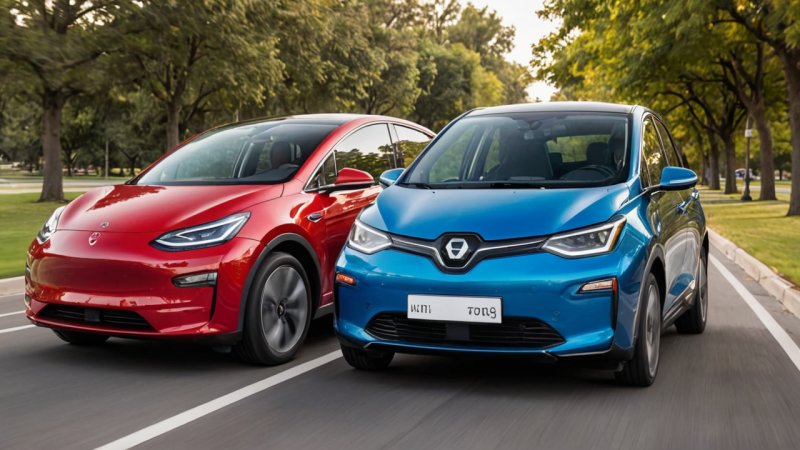The automotive industry is undergoing a significant transformation, with electric vehicles (EVs) gaining popularity and gasoline-powered cars still dominating the market. Understanding the pros and cons of both types of vehicles is crucial for consumers looking to make informed decisions. This article will provide a detailed comparison between electric and gasoline cars, examining their performance, costs, environmental impact, and technology integration.
Performance
When it comes to performance, both electric and gasoline cars have their unique strengths.
Electric Cars
Electric vehicles are known for their instant torque and smooth acceleration, providing a thrilling driving experience. They often outperform gasoline cars in terms of 0-60 mph times, making them ideal for urban commuting and quick getaways.
Gasoline Cars
Gasoline-powered vehicles, however, offer a different kind of performance, particularly for long-distance driving. They typically have a higher top speed and can maintain performance over extended periods without the need for recharging.
Cost Considerations
The cost of owning and operating a vehicle is a major factor in the decision-making process.
Electric Cars
While EVs often come with a higher upfront cost, they tend to have lower operating costs. Electricity is generally cheaper than gasoline, and electric cars require less maintenance since they have fewer moving parts. Many governments also offer tax incentives for electric vehicle purchases, which can help offset initial costs.
Gasoline Cars
Gasoline cars usually have a lower purchase price, making them more accessible for budget-conscious buyers. However, fuel costs can add up, and maintenance can be more frequent due to the complexity of the internal combustion engine.
Environmental Impact
Environmental concerns are becoming increasingly important for many consumers, and vehicle emissions play a significant role in this.
Electric Cars
Electric vehicles produce zero tailpipe emissions, which significantly reduces their environmental footprint. However, the source of electricity used to charge them can impact their overall environmental impact, especially if it comes from fossil fuels.
Gasoline Cars
Gasoline cars emit greenhouse gases and pollutants, contributing to air quality issues and climate change. While advancements have been made to improve fuel efficiency and reduce emissions, they still fall short compared to electric vehicles.
Technology Integration
Modern vehicles are equipped with various technologies that enhance safety, convenience, and entertainment.
Electric Cars
EVs often come with the latest tech features, including advanced infotainment systems, autonomous driving capabilities, and over-the-air updates. Many electric vehicles are designed with smart technology that allows for seamless connectivity with smartphones and smart home devices.
Gasoline Cars
While traditional gasoline cars may not always feature the latest technology, many newer models are equipped with modern amenities such as adaptive cruise control, lane-keeping assist, and smartphone integration. However, they may not match the level of innovation found in electric vehicles.
Charging Infrastructure vs. Fuel Availability
Another crucial aspect to consider is the availability of charging stations versus gas stations.
Electric Cars
Charging infrastructure is rapidly expanding, but it can still pose a challenge in certain areas, particularly in rural locations. Home charging options are available, but not everyone has access to a garage or dedicated parking space.
Gasoline Cars
Gas stations are widely available, making it easy to refuel almost anywhere. This convenience is a significant advantage for gasoline vehicles, especially for long trips.
Conclusion
In summary, both electric and gasoline vehicles have their advantages and disadvantages. Electric cars offer superior performance, lower operating costs, and a smaller environmental footprint, while gasoline cars provide affordability and convenience in refueling. Ultimately, the choice will depend on individual needs, driving habits, and priorities. For those who value sustainability and advanced technology, electric vehicles may be the best option. However, for those who prioritize initial cost and long-distance travel convenience, gasoline cars still hold strong appeal.






